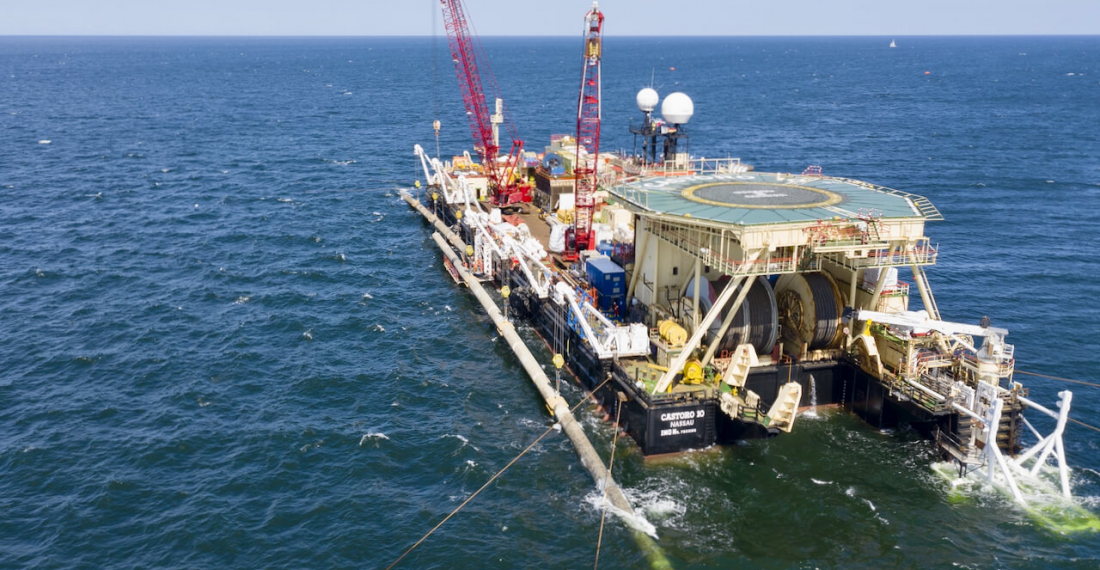On Thursday (21 January), the European Parliament passed a resolution calling for a halt to the Nord Stream 2 gas pipeline's construction. The pipeline will bring Russian natural gas to Europe, via Germany under the Baltic Sea. The resolution is seen as the parliament's response to the arrest of Russian opposition leader Alexei Navalny.
In recent days, members of the European parliament have called for comprehensive sanctions against Russia following Navalny's arrest in Moscow on his return after he was treated in Germany for poisoning with a nerve agent in the summer of 2020.
The resolution is non-binding, but adds political weight to calls on the EU to review relations with Russia in the light of Navalny's arrest. It seeks an immediate halt to the construction of the German-Russian Nord Stream 2 pipeline.
Led by Russia's Gazprom with Western partners, the gas pipeline is intended to double the capacity of the existing undersea Nord Stream gas pipeline from Russia to Germany to 110 billion cubic meters per year, more than half of Russia's total pipeline gas exports to Europe.







